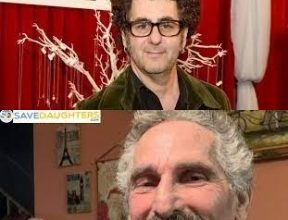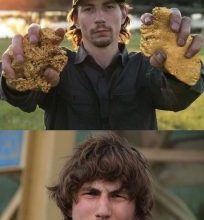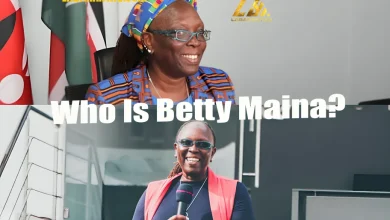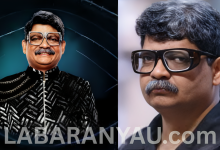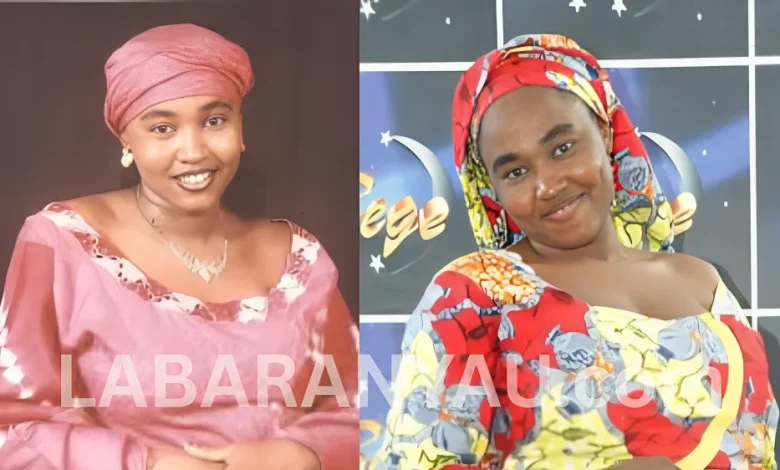
Rabi Mustapha Biography
Rabi Mustapha, a pioneering Kannywood actress and singer, began her career in the mid-1990s and quickly rose to fame as one of the industry’s earliest and most beloved female vocalists.
Known as the “Lata Mangeshkar of Hausa films,” she lent her voice to iconic movies like Ki Yarda Da Ni, Zakaran Gwajin Dafi, and Kara Da Kiyashi.
Also, she acted in films such as Ingiza Mai Kantu and Mujadala. In 2012, she released an album titled Babbar Jaka, showcasing her classic and new songs.
Rabi also worked with the BBC in Abuja on radio dramas for children. She was married to a civil servant and had one son before their 2005 separation.
Sadly, Rabi Mustapha passed away on February 26, 2014, in Kano after a brief illness, leaving behind a lasting legacy in the Kannywood industry.
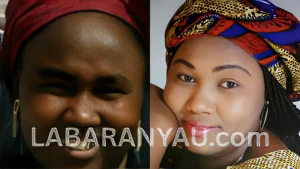
Rabi Mustapha Wikipedia
| Fact | Details |
|---|---|
| Full Name | Rabi Mustapha |
| Origin | Kano State, Nigeria |
| Profession | Actress and Singer (Kannywood) |
| Career Start | Mid-1990s |
| Popular Films | Ki Yarda Da Ni, Zakaran Gwajin Dafi, Kara Da Kiyashi, Badaqala, etc. |
| Acting Roles | Ingiza Mai Kantu, Saki Reshe, Tawakkali, Mujadala |
| Notable Album | Babbar Jaka (Released in 2012) |
| Radio Work | BBC Abuja – Children’s drama roles |
| Marital Status | Divorced in 2005 (was married to a civil servant) |
| Children | One son |
| Date of Death | February 26, 2014 |
| Place of Death | Kano, Nigeria |
| Legacy Title | “Lata Mangeshkar of the Hausa film industry” |
Rabi Mustapha Career Highlights
Rabi began her career in the mid-1990s, becoming one of the first female singers in Kannywood.
Her melodious voice featured in numerous films, including Ki Yarda Da Ni, Zakaran Gwajin Dafi, Kara Da Kiyashi, Sa’a Ta Fi Gata, Maigida Kwanzuma, and Badaqala.
She also took on acting roles in movies such as Ingiza Mai Kantu, Saki Reshe, Tawakkali, and Mujadala.
Despite her acting endeavors, it was her singing that truly resonated with audiences, earning her the moniker “the Lata Mangeshkar of the Hausa film industry.”
In 2012, she released an album titled Babbar Jaka, which compiled both new and classic songs, further cementing her legacy in the industry.
Additionally, Rabi lent her voice to a BBC radio drama, portraying children’s characters over several years in Abuja.
Rabi Mustapha’s Personal Life
Rabi was married to an Abuja-based civil servant, and the union was blessed with a son. However, the marriage ended in 2005.
Check Out: Zulaihat Dalhat (Zulai Lilisco) Biography, Wikipedia, Age, Career, Movies, Husband, Family, Legacy
Rabi Mustapha Passing and Legacy
Rabi Mustapha passed away on Wednesday, February 26, 2014, in Kano after a brief illness. She was laid to rest according to Islamic rites.
Her death was a significant loss to the Kannywood community, with many colleagues and fans mourning her sudden departure.
Her final public performance was at the wedding of her colleague, Fati Musa, in December 2013.
Rabi Mustapha’s contributions to Kannywood remain influential, and she is remembered for her talent, humility, and the indelible mark she left on Hausa cinema.
FAQs
1. Who was Rabi Mustapha?
Rabi Mustapha was a pioneering Kannywood actress and singer, known for her powerful voice and iconic roles in Hausa-language films during the 1990s and early 2000s.
2. Why was she called the “Lata Mangeshkar of Kannywood”?
She earned the nickname due to her melodious and emotional voice, similar to legendary Indian singer Lata Mangeshkar, and her dominant presence in film soundtracks.
3. When did Rabi Mustapha start her entertainment career?
She began her career in the mid-1990s, a foundational period for the Kannywood industry.
4. What are some of her most famous films?
Ki Yarda Da Ni
Zakaran Gwajin Dafi
Kara Da Kiyashi
Sa’a Ta Fi Gata
Badaqala
5. Did Rabi Mustapha act as well as sing?
Yes. Although widely known for her voice, she also acted in several films, including Ingiza Mai Kantu, Saki Reshe, Mujadala, and Tawakkali.
6. Did she release any albums?
Yes. In 2012, she released an album titled “Babbar Jaka”, which included both classic hits and new songs.
7. Was she involved in radio or other media?
Yes. Rabi Mustapha worked with the BBC in Abuja, lending her voice to children’s radio dramas for several years.
8. What do we know about her personal life?
She was married to a civil servant and had one son, but they divorced in 2005.
9. When and how did Rabi Mustapha die?
She passed away on February 26, 2014, in Kano after a brief illness. Her death was mourned by the entire Kannywood industry.
10. What is Rabi Mustapha’s legacy in Kannywood?
She remains a symbol of female excellence in Hausa cinema, inspiring many female artists and leaving behind a rich catalog of songs and performances that helped shape Kannywood’s identity.
Conclusion:
Rabi Mustapha was a trailblazer in the Kannywood industry, whose unique voice and heartfelt performances left a lasting imprint on Hausa cinema.
Emerging in the mid-1990s, she helped shape the early soundtracks of Kannywood films and was celebrated as the “Lata Mangeshkar of the Hausa film industry.”
Her dual talent as both a singer and actress made her a beloved figure in northern Nigeria.
Even after her passing on February 26, 2014, her songs, roles, and legacy continue to inspire a new generation of artists and fans alike.
Rabi Mustapha is remembered not just for her talent but for the passion and authenticity she brought to every performance.
Discover more from Labaran Yau
Subscribe to get the latest posts sent to your email.
